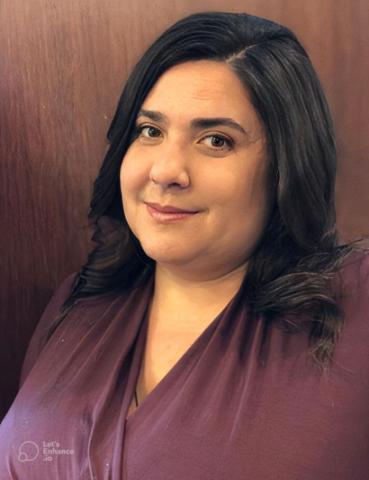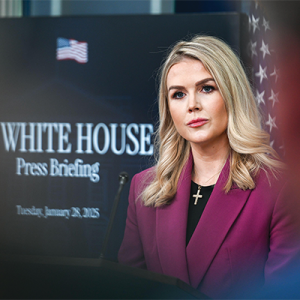
Katherine Kelaidis, author of Holy Russia? Holy War?, is a research associate at the Institute of Orthodox Christian Studies in Cambridge, England.
Posts By This Author
Are ‘Exvangelicals’ Making It Harder to Defeat Christian Nationalism?
AT TIMES, WHITE HOUSE press secretary Karoline Leavitt proudly wears a gold cross when meeting with the press pool. Many assume she emerges from the heart of right-wing American evangelicalism. But they would be wrong. Leavitt emerges from the heart of right-wing American Catholicism. While we have been focused on the fusion of evangelical Christianity and Far Right nationalism, we’ve missed how Christian nationalism has risen in Catholic and Orthodox traditions. Are former evangelicals — or “exvangelicals” — who resist Christian nationalism also contributing to its smokescreen?
“Christian nationalism” is an idea from academia that has become a bit overused. Fortunately, sociologists Andrew L. Whitehead and Samuel L. Perry provide a narrower, more workable definition. Christian nationalism, they write, is an “ideology that idealizes and advocates a fusion of Christianity and American civic life.”
In the past 50 years, this ideology has increasingly emerged as a visible force in American life, as the Religious Right walked onto the political scene and into the center of the Republican Party. For all that time, the image in the popular mind of the Christian nationalist has been stereotypically the (often Southern, but not always) white evangelical denizen of megachurches replete with rock bands and biblical literalism.
Colorado was one of the epicenters of that subculture, in part due to James Dobson’s Focus on the Family, based in Colorado Springs. I grew up in that region when the subculture was reaching its zenith in the 1990s, and it was clear that our evangelical neighbors did not think of my family’s Greek Orthodox faith as “Christian.” As a marginal minority in a context where evangelical Christians dominated the state’s cultural and political life, this experience prompted my interest in the history of religion; specifically, in how people construct idiosyncratic versions of history and identity for political ends. Over the years, I’ve watched the Religious Right morph into something new and virulent. Many of those raised in its most extreme cultures have migrated out of nondenominational evangelicalism to Orthodox Christianity or Catholicism. Others left Christianity altogether, joining the unaffiliated or “nones.” Many of the millennial (born between 1981 and 1996) and Generation Z (1997 to 2012) children of American evangelicalism became disaffected with their upbringing and the limited worldview it offered.
